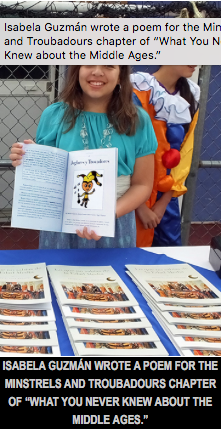
|
Muéstrale a los niños que las herramientas que necesitan para ser optimistas están a su alcance. By Caroline Knorr 9/10/2017 Para quienes están criando niños hoy en día, puede ser fácil enfocarse en lo negativo debido a los ciclos de noticias de 24 horas, las redes sociales, las notificaciones en el teléfono e incluso fuentes que no esperarías como Instagram y YouTube. La verdad, a veces parece que los niños están viviendo en un mundo demasiado oscuro. Considera la situación actual: la tasa de suicidio ha subido, el ciberbullying está en todos lados, Estados Unidos está más dividido que nunca y la gente está haciendo live-streaming de suicidios y asesinatos. Además, muchos desastres naturales han ocurrido en los últimos meses, por lo que las noticias están llenas de familias que lo perdieron todo. Así que es comprensible que no tengas ganas de sonreír todos los días y mantener a tus hijos optimistas sobre el futuro. Pero no te rindas. Irónicamente, aunque los medios y la tecnología parecen ser la causa del pesimismo colectivo, también son esenciales para sobreponerse, bien sea al usarlos sabiamente o al saber cuándo dejarlos a un lado. Estas son seis formas de conseguir algo positivo frente a las complicaciones. 1. Pon las cosas en perspectiva Cuando sucede una tragedia en algún lugar del mundo, la revivimos cada vez que prendemos la televisión, entramos a las redes sociales, revisamos las notificaciones de nuestro teléfono o vemos titulares en un periódico sensacionalista al salir del supermercado. Como padres deben recordar que muchas veces los medios exageran las cosas para aumentar su audiencia o hacer que la gente le dé clic a sus artículos. Sin embargo, los niños no necesariamente entienden las relaciones entre fuentes, patrocinadores y audiencia. La forma en que tú respondes a las noticias hace una diferencia en la forma en la que los niños las procesan, así que ayuda a tus niños a poner las cosas en perspectiva al explicarles que muchas veces quienes gritan más fuerte son quienes son más escuchados. Al darle a las cosas el verdadero tamaño que tienen, los niños tendrán menos miedo y los ayudarás a restaurar su esperanza. 2. Habla con tus hijos sobre las cosas por las que estás agradecido Haz frente a las actitudes derrotistas al enriquecer el carácter de tu hijo. Tener la capacidad de permanecer tranquilos es una buena base para los niños cuando el mundo parece demasiado caótico. Tómate el tiempo para compartir las razones por las que estás agradecido. Aliéntalos a perseverar a pesar de los obstáculos y a tener compasión por los demás. Hay investigaciones científicas que demuestran que expresar gratitud hace que la gente se sienta más optimista. Intenta con estos libros y películas para comenzar la conversación. 3. Combate las noticias falsas (fake news) Muchos niños dicen que no saben diferenciar entre qué es real y falso en internet y la confusión, las dudas y falta de confianza se interponen al optimismo. Diles que usen sitios de fact checking (sitios que revisan en fuentes confiables si lo que dicen las noticias y los políticos es cierto) para que se enteren de la verdad, o al menos descubran si algo es un fraude. También es importante que se nieguen a compartir información cuando no la logren verificar. Diles que también pueden hacer advertencias en sus redes cuando vean contenido dudoso. Hacer su propio fact-checking será empoderador. 4. Enfrenta a los ciberbullies Enséñale a tus hijos a ser responsables. Cuando vean a alguien sufriendo de ciberbullying (lo cual ocurre con frecuencia a través de mensajes de texto, redes sociales y videojuegos online) diles que no lo dejen pasar. Aunque nunca deben hacer nada que los ponga en peligro, es mucho lo que pueden hacer para ayudar a los demás. Pueden señalar a los ciberbullies, reportarlos, ponerse del lado de la víctima o simplemente mandarle un mensaje privado a la víctima para que sepan que a alguien les importa lo que les está sucediendo. Diles que esto no quiere decir que sean "acusones", ya que es responsabilidad de todos mantener el internet como un lugar positivo y productivo. Hacerle frente a los ciberbullies demuestra que realmente crees que puedes hacer la diferencia. 5. Acaba con el lenguaje de odio La anonimidad de internet puede tener consecuencias negativas, por ejemplo, algunas personas creen que pueden usar lenguaje de odio o imágenes insultantes sin ser descubiertas. Aunque este sea el caso, igual es una ofensa que tendrá víctimas. Algunas instituciones están comenzando a castigar a quienes comparten material abusivo, pero nadie debería esperar hasta que eso pase. El lenguaje de odio le hace daño a las personas, contribuye a un ambiente negativo y muchas veces es una llamada de atención de personas que están en crisis. Explícales cómo responder a los mensajes de odio: no respondas, bloquea a las personas que lo hacen, reporta las ofensas y no lo compartas. Si tu hijo logra influenciar aunque sea a una persona a alejarse de esto, habrán influenciado a alguien más y se sentirán mejor. 6. Sepárate del resto del mundo por un tiempo Llévate a tus hijos y a tu pareja si tienes una, y aléjate del ruido. Si todos están allí contigo, no extrañarás nada. El simple hecho de estar juntos, bien sea leyendo, cenando sin celular o hablando, te recargará y enviará a tus hijos el mensaje de que la familia es lo más importante. Los expertos recomiendan este tipo de actividad porque tantas noticias negativas seguidas pueden ser demasiado y resultar debilitantes, y si así es como se sienten los adultos, imagínate cómo se sienten los niños. Al tomar las riendas del consumo de medios y mantener el tiempo en familia como algo sagrado, le muestras a los niños lo que realmente importa.
0 Comentarios
Reserva tu lugar al correo [email protected]
IMI te invita un café.
Asiste a la charla a padres de familia éste miércoles 25 de mayo a las 08:00 am en el Plantel B. Los esperamos el próximo miércoles 18 de mayo a la charla de papás
¿Cómo conocer si mi hij@ miente? Hora: 08:00 am. Lugar: Plantel B (sótano) Les compartimos los siguientes enlaces que nos envía la Sra. Ireri Velasco, quien nos ha estado apoyando en el couching con papas IMI cada miércoles. El cerebro de un adolescenteTus hij@s y la internertNos acaba de llegar el comunicado oficial sobre el cambio en el calendario escolar.
Sí hay clases el jueves 5 de mayo, pero se suspenden el viernes 6. Les compartimos el artículo del periódico "The Guadalajara Reporter" sobre nuestra IMI Book Fair 2016, por nuestro padrino de inauguración y columnista del periódico, John Pint.  April 23 is the anniversary of William Shakespeare’s death and the same date was chosen by UNESCO to be World Book Day. At one school in Guadalajara, Colegio IMI, the occasion was commemorated by what I would call the most unusual book fair I have ever attended. Some time ago, our friend Luis Medina invited My wife, Susy, and me to be padrinos of the school’s book fair. “The number one sellers at the fair will be books entirely created by the students themselves,” he told me. Well, I know that reading and writing are, sad to say, going “out of style” in Mexico and we were delighted to cooperate in slowing that trend. But the moment we actually laid eyes on the books these students had produced, we realized that something truly extraordinary was going on in that school. Not only was the quality of writing outstanding, but the quality of the editing, illustrations and even the paper as well. We ourselves ended up buying two of the books not out of politeness, but because they were really good and well worth reading.  I asked the Colegio’s coordinator, Lucy Hurtado to fill me in on the story behind these students’ achievements. “We decided to hold a book fair,” she told me, “but we wanted ours to be something more than the traditional book fair, where all you do is go look at books written by someone else. We wanted to motivate our children to become writers, to produce their own books. Our fourth-year students, for example, chose ‘legends’ as their subject. Then they thought about what period of history they were interested in: contemporary legends? Pre-Conquista legends? Well, they began to work on all this and at the end of the process, they came out with a book of eleven legends, entirely produced by themselves. They did the illustrations, spell-checking, editing and so on, and, of course, we teachers assisted them whenever they needed it.” The school’s fifth-year students chose poetry Miss Hurtado went on. Each child wrote his or her own poem, but first they studied aspects of verse like synalepha and meter. They also looked at the works of Nobel prize winners, Mexican and otherwise. The primary students, instead, chose the Middle Ages and they focused on scientific research. They gathered information, validated it from several sources and once they had reliable data, they developed their book, which they titled Lo Que No Sabías de la Edad Media: What You Never Knew about the Middle Ages. “The sixth-year students,” said Miss Hurtado, “decided not only to describe the entire physical process of book production from beginning to end (which they did in English), but to go ahead and actually produce hand-made books of their own, with unique covers.”
These beautiful, hand-crafted books are blank, just waiting for a budding writer to fill their pages. To give you the flavor of one of these books, here is my translation of a few lines from Chapters 1 and 2 of What You Never Knew about the Middle Ages by Frida Delgado, Nycole Jiménez, Karla Alfaro, Juan Carlos Moreno, Jorge Villalobos, Sidharta Muñoz and Juan Pablo León: Did you know that in the Middle Ages they had neither plates nor forks? They used to cut up bread and put their food between two pieces in order to eat it. Several attempts were made to introduce something like a fork so they could eat without dirtying their hands. This device had a long handle so people could also use it to scratch their backs. Did you know that in order to find out if a woman was a witch, they would tie her feet together and throw her into a river? If she floated, it meant she was a witch and they burned her. If she sank, she would drown, but she would die in the grace of God. The Black Plague They thought the plague was a divine chastisement. Some connected it with the alignment of the planets while others placed the blame on foreigners and Jews. Research by scientists show that the Black Plague which appeared in Asia was actually due to fleas which carried the disease from infected rats to human beings. El Colegio IMI (Instituto Mexico Inglés) is located at Mallorca 1215 near the Guadalajara Country Club, TEL 3824-6290 and 3824-6299. The school was founded in 1991 by “Miss Lulú” in her home. “Within one year we had 60 kids in kindergarten,” reports a family member. “Every room in the house became a classroom.” The school was so successful that Miss Lulú soon had to purchase a bigger home and today IMI has its own campus attendance and is certified by San Diego State University and Cambridge International School. The college is focused on “generating creative thought” and aims to “bring fun into education.” Classes are taught in Spanish, English and French. http://www.theguadalajarareporter.com/index.php/columns/columns/john-pint/48112-students-celebrate-world-book-day-with-a-creative-book-fair
Cómo responder a los niño@s sobre la sexualidad con PNL.
Día: Miércoles 20 de abril Hora: 08:00 hrs. Lugar: Sótano, Plantel B. |
Avisos del mes…
Noviembre 2017
CategoriesRecibe automáticamente nuestros avisos generales
Click... |
